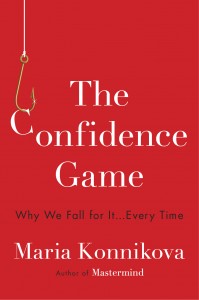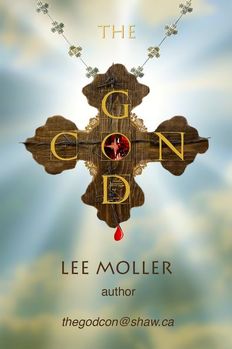 I read this book for research purposes. I am scribbling up some thoughts on the origins of religion and a central theme is the art of the con. The author is a psychologist and the book is from that point of view. I do not have a ton of respect for clinical psychology, but I do respect experimental psychology. It is no surprise to me that much of the psychological research and results cited in the book straddle the line. And few, if any, of them told me anything I did not know or would expect. The chapters headings are essentially the how-to of cons: the put up; the play; the roper; the convincer the send; and the blow off. The basic psychological conclusions echo my own. People are social creatures. They want to believe. Stories are very important to people on a very basic level. A good con, or religion, requires a good story. Tribes are bound by their language and their stories. People love to be flattered. If you say something long enough, and others echo it, you will be believed. People are inherently greedy, especially if they think they are getting something for nothing, either without hurting anyone, or by only hurting "bad" people. Adding a "limited time" aspect increases the greed much faster than otherwise. And finally, people are chock-a-block full of largely unconscious biases. The con artist uses confirmation bias to fool us. We use what I call investment bias (close to cognitive dissonance and the inability to see a sunk cost) causes us to stick with something way after it is obvious to others that it is a sham. The book references some of the best sources on the subject, such as The Big Con, on which the movie The Sting was partially based. But for me, it was not great and I can't recommend it. I did not read it in detail. There are a ton of con game sob stories which get tiresome. Con artists know what buttons to push to get you to beg to be let in, want to stay in, and deny you were a sap when you are out.
2 Comments
16/11/2017 08:15:49 pm
Заработок в интернете это просто!
Reply
21/3/2024 01:38:53 pm
I just finished "The Confidence Game" by Maria Konnikova. It's a fascinating exploration of the psychology behind cons and con artists. The book dives into the tricks of the trade, exploring how con artists exploit our social tendencies and vulnerabilities. It left me feeling a little more aware of my own biases and the tactics that scammers might use. If you're interested in human behavior or how to protect yourself from being conned, I highly recommend it!
Reply
Leave a Reply. |
AuthorLee Moller is a life-long skeptic and atheist and the author of The God Con. Archives
May 2024
Categories
All
|

 RSS Feed
RSS Feed